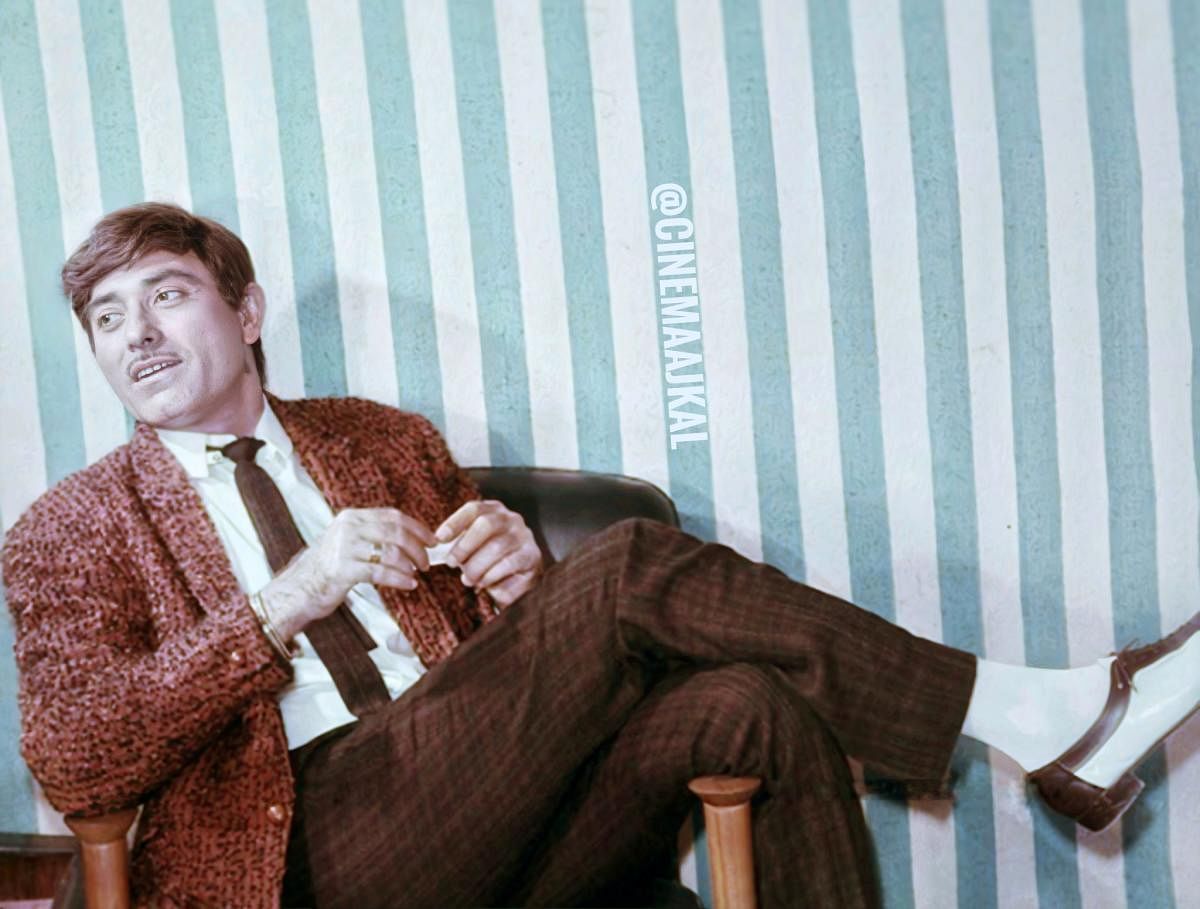
Aapke paon dekhe, bahut haseen hain. Inhein zameen par mat utariyega, maile ho jayenge...” (Pakeezah, 1972). “Chinoy seth, jinke apne ghar sheeshe ke hon, woh doosron par patthar nahin phenka karte...” (Waqt, 1965).
No prize for guessing. The aforementioned two dialogues of the inimitable actor Raaj Kumar is etched in the collective memory of film buffs from that era. Born as Kulbhushan Pandit in Loralai, Baluchistan, on October 8, 1926, he lived, acted and behaved like a prince (Rajkumar) till he shuffled off the mortal coil on July 3, 1996.
Raaj Kumar knew that he wasn’t endowed with conventional handsome looks. He had a rugged personality as he was a sub-inspector under Bombay Police prior to joining the film industry. But he used his rough and tough appearance to his advantage and created a screen presence that distinguished him from his contemporaries.
A very well-read man, Raaj Kumar was a florid orator and gentleman, though his bluntness often upset many actors. In one such interesting episode, he had told an already established Zeenat Aman, “You’ve a pretty face. You should try acting.”
Raaj Kumar spoke impeccable Urdu and English and always preferred to read his scripts written in Urdu. Despite his serious and no-nonsense (screen) persona, he got some of the most romantic songs to sing on the celluloid. Who can forget the unforgettable number that Rafi sang for him in ‘Kajal’ (1965): ‘Ye zulf agar khulke...’ or ‘Neele gagan ke tale...’ (‘Humraaz’, 1967), ‘Meri duniya mein tum aayi’ (‘Heer Raanjha’, 1970), ‘Chalo dildaar chalo chaand ke paar chalo’ (‘Pakeezah’, 1972) and ‘Har taraf ab yahi afsane hain’ (‘Hindustan ki Qasam’, 1973).
Raaj Kumar became famous from Soharab Modi’s ‘Nausherwan-e-Adil’ that hit the screens in 1957. Rafi’s immortal number ‘Ye hasrat thi ke...’ worked as a catalyst for him. ‘Mother India’ (1957) and ‘Shararat’ in 1959 further boosted his film career. ‘Dil Apna Aur Preet Parayee’ (1960) and ‘Dil Ek Mandir’ (1963) established him as an actor of substance. He acted with Dilip Kumar in ‘Paigham’ in 1959 but both the stalwarts were not on talking terms for three decades until Subhash Ghai brought them together for his ‘Saudagar’ (1991).
Theirs was a classic case of two swords unable to slide into one scabbard. Nonetheless, both acknowledged the excellence of each other and that was their magnanimity. The motto of Raaj Kumar’s life was: “I believe in things I do, I do things I believe in.”
Fiercely independent and forever confident, the maverick actor never compromised on his principles. So indomitable was his spirit that when Subhash Ghai visited an ailing Raaj Kumar, the latter remarked, “Raaj Kumar ko bimaari hogi toh badi hogi na, koi zukaam se thodi na marega Raaj Kumar.” (Even Raaj Kumar’s sickness has to be grand, he isn’t one to die of a common cold)”.